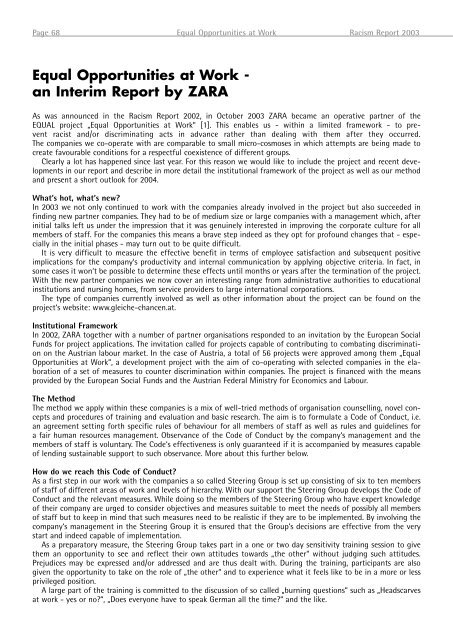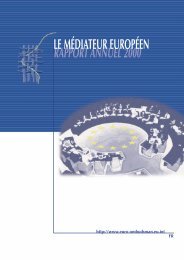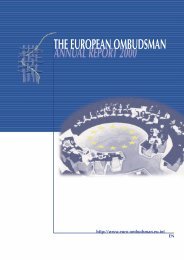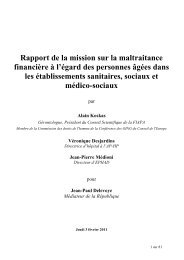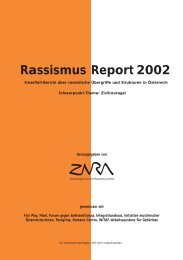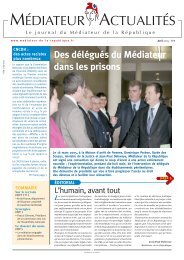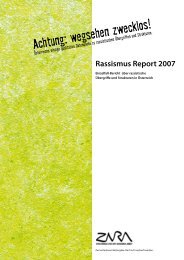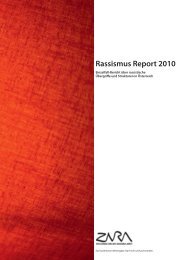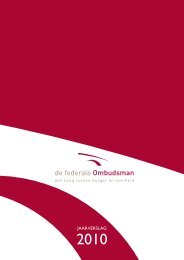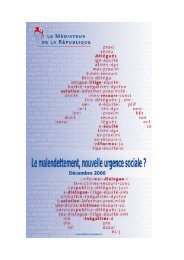Racism Report 2003 - Zara
Racism Report 2003 - Zara
Racism Report 2003 - Zara
You also want an ePaper? Increase the reach of your titles
YUMPU automatically turns print PDFs into web optimized ePapers that Google loves.
Page 68 Equal Opportunities at Work <strong>Racism</strong> <strong>Report</strong> <strong>2003</strong>Equal Opportunities at Work -an Interim <strong>Report</strong> by ZARAAs was announced in the <strong>Racism</strong> <strong>Report</strong> 2002, in October <strong>2003</strong> ZARA became an operative partner of theEQUAL project „Equal Opportunities at Work“ [1]. This enables us - within a limited framework - to preventracist and/or discriminating acts in advance rather than dealing with them after they occurred.The companies we co-operate with are comparable to small micro-cosmoses in which attempts are being made tocreate favourable conditions for a respectful coexistence of different groups.Clearly a lot has happened since last year. For this reason we would like to include the project and recent developmentsin our report and describe in more detail the institutional framework of the project as well as our methodand present a short outlook for 2004.What’s hot, what’s new?In <strong>2003</strong> we not only continued to work with the companies already involved in the project but also succeeded infinding new partner companies. They had to be of medium size or large companies with a management which, afterinitial talks left us under the impression that it was genuinely interested in improving the corporate culture for allmembers of staff. For the companies this means a brave step indeed as they opt for profound changes that - especiallyin the initial phases - may turn out to be quite difficult.It is very difficult to measure the effective benefit in terms of employee satisfaction and subsequent positiveimplications for the company‘s productivity and internal communication by applying objective criteria. In fact, insome cases it won‘t be possible to determine these effects until months or years after the termination of the project.With the new partner companies we now cover an interesting range from administrative authorities to educationalinstitutions and nursing homes, from service providers to large international corporations.The type of companies currently involved as well as other information about the project can be found on theproject‘s website: www.gleiche-chancen.at.Institutional FrameworkIn 2002, ZARA together with a number of partner organisations responded to an invitation by the European SocialFunds for project applications. The invitation called for projects capable of contributing to combating discriminationon the Austrian labour market. In the case of Austria, a total of 56 projects were approved among them „EqualOpportunities at Work“, a development project with the aim of co-operating with selected companies in the elaborationof a set of measures to counter discrimination within companies. The project is financed with the meansprovided by the European Social Funds and the Austrian Federal Ministry for Economics and Labour.The MethodThe method we apply within these companies is a mix of well-tried methods of organisation counselling, novel conceptsand procedures of training and evaluation and basic research. The aim is to formulate a Code of Conduct, i.e.an agreement setting forth specific rules of behaviour for all members of staff as well as rules and guidelines fora fair human resources management. Observance of the Code of Conduct by the company‘s management and themembers of staff is voluntary. The Code‘s effectiveness is only guaranteed if it is accompanied by measures capableof lending sustainable support to such observance. More about this further below.How do we reach this Code of Conduct?As a first step in our work with the companies a so called Steering Group is set up consisting of six to ten membersof staff of different areas of work and levels of hierarchy. With our support the Steering Group develops the Code ofConduct and the relevant measures. While doing so the members of the Steering Group who have expert knowledgeof their company are urged to consider objectives and measures suitable to meet the needs of possibly all membersof staff but to keep in mind that such measures need to be realistic if they are to be implemented. By involving thecompany‘s management in the Steering Group it is ensured that the Group‘s decisions are effective from the verystart and indeed capable of implementation.As a preparatory measure, the Steering Group takes part in a one or two day sensitivity training session to givethem an opportunity to see and reflect their own attitudes towards „the other“ without judging such attitudes.Prejudices may be expressed and/or addressed and are thus dealt with. During the training, participants are alsogiven the opportunity to take on the role of „the other“ and to experience what it feels like to be in a more or lessprivileged position.A large part of the training is committed to the discussion of so called „burning questions“ such as „Headscarvesat work - yes or no?“, „Does everyone have to speak German all the time?“ and the like.


